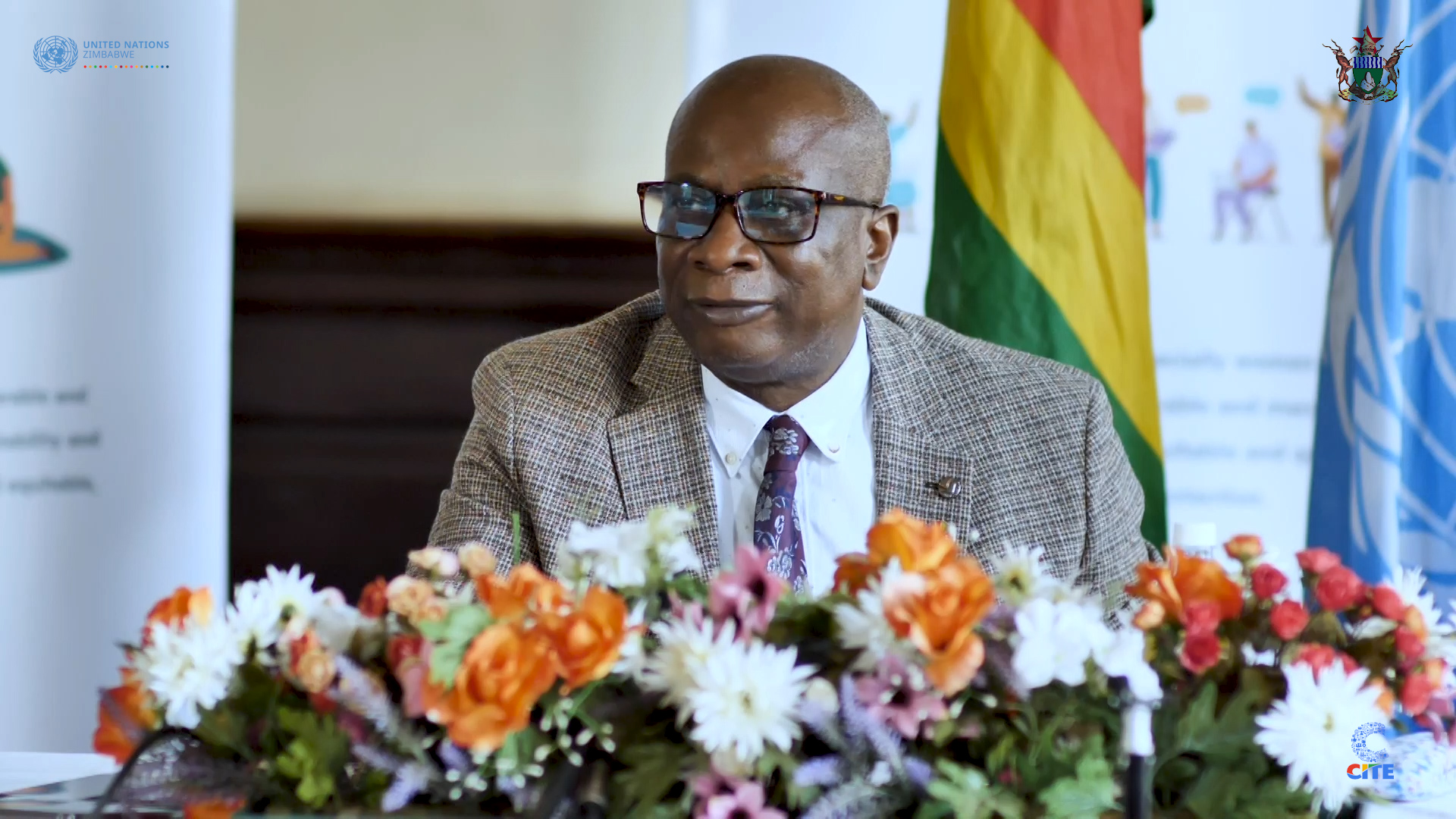The United Nations (UN) says its flash appeal for US$430 million, is intended to supplement rather than replace or compete with the Zimbabwean government’s efforts.
The Zimbabwean government has appealed for US$3.3 billion to address the drought catastrophe.
The disparity in the figures had prompted concerns, with some speculating that the government’s amount was “too high,” allowing room for looting.
UN Resident and Humanitarian Coordinator for Zimbabwe Edward Kallon, explained the reasoning behind the UN’s fractional appeal.
“You are right. Whatever the United Nations has appealed for is a fraction of what the government projected as a need to respond to the drought disaster in Zimbabwe,” Kallon stated during a press conference in Bulawayo Wednesday to assess the impact of El Niño in Matabeleland and provide an update on current humanitarian efforts.
“We are not in any way competing with the government on this request, but rather the UN support is complementing the government’s effort.”
The UN Resident Coordinator, who was with the UN Assistant Secretary General and Climate Crisis Coordinator, Reena Ghelani, and World Food Programme (WFP) Assistant Executive Director, Valerie Guarnieri, said their approach to drought focuses on a short-term, multi-sectoral response to meet the immediate needs of those most vulnerable to the drought’s impacts.
“Our response is a short-term multi-sectoral response to address the immediate needs of vulnerable people affected by the drought,” Kallon explained.
“At the same time, we are working with the government to support them in building resilience among affected communities. So, I think the word here is complementarity rather than one of underestimating or being below or above whatever the government is projecting.”
Like most Sub-Saharan countries, Zimbabwe is in the grip of the 2023/24 El Niño-induced drought, which has resulted in massive crop failure, and depletion of water resources, and pastures.
Zimbabwe’s agro-based economy has been largely affected, and the government said US$3.3 billion is needed to also cater for the resilience of communities, a figure which was revised from the initial US$2 billion.
Kallon also emphasised the importance of collaboration and complementarity between the UN and the Zimbabwean government.
“What we are both clear on is that about 7.7 million people have been affected by this drought,” he said.
“We need resources to address the immediate needs of those affected by this crisis, and the UN flash appeal is in that regard.”
The UN’s US$430 million appeal aims to provide immediate humanitarian assistance, including food, water, sanitation, nutrition, and education, to 3.1 million people.
“This is not in any way saying that this is what is required in totality, so our effort has complementarity and working with the government. They are in the driving seat, and we are here to help them realize their responsibilities to respond to the needs of their people,” Kallon said.
The WFP Assistant Executive Director said in addition to complementing the government, they were also looking at how to make sure their response is more effective in providing technical assistance.
“That is technical assistance to support the targeting of programs to reach those who are most vulnerable at the community level and also supporting them with logistics, transporting, and hiring transporters in an efficient and transparent way so that the available food assistance, through the GMB, can be moved speedily to the areas where it needs to go,” Guarnieri explained.
“This level of technical assistance is also a big part of the support that the World Food Programme is providing as part of the UN system here in Zimbabwe and it’s work like that we do all over the region.”
Guarnieri also said there was a difference in how the response had been mobilized.
“First and foremost, there has been an anticipatory action that has been launched where people were identified as needing support before the worst of the crisis and they were able to receive some punctual support,” she said.
“Secondly, there is a large government plan that is underway and is rolling out to support the population, and the UN is doing its part to target and assist the most vulnerable as part of that plan.”
“Third, there is insurance that has been called upon from the African Risk Capacity Risk insurance that has provided US$31 million that the government, WFP, and other partners have had access to and is being used.”
Guarnieri said these premium payouts are used to support the vulnerable population and along with traditional donor support, it gave them the wherewithal to mount a substantial response during the lean season.
“This is food for populations who are identified as most vulnerable in the rural areas and cash for populations who were identified as most vulnerable in the cities and towns. But it’s not just food that’s going to be needed for this response. We need to bring under the leadership of the Resident Coordinator, a multi-sectoral package,” she said.
The WFP official said water is something that everybody is talking about in Zimbabwe, especially in Matabeleland.
“Nutrition, sanitation, education – all of these pieces are pieces in the puzzle that we are trying to solve, so we need continued support and stamina to be able to mount this multi-sectoral response and then maybe just last is that it can’t stop with response,” Guarnieri said.
“We visited communities where investments in their resilience have helped reduce the impact of this historic drought but will also help quicken the recovery of these communities coming out of this drought.”

